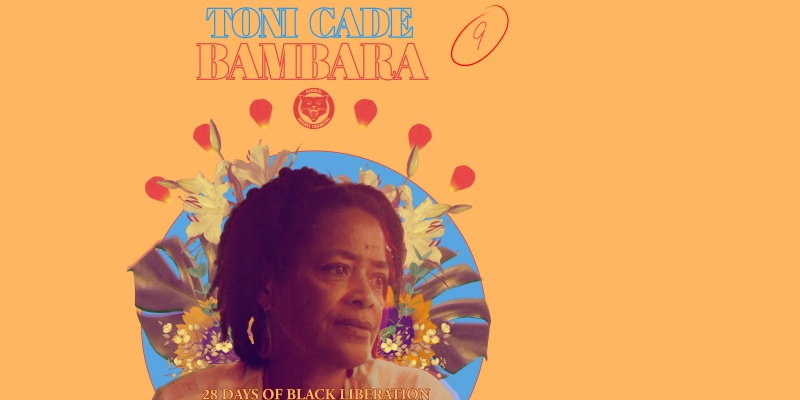Day 9 of the 28 Days of Black Liberation 2024 series
Born in 1939 Toni Cade Bambara was very concerned about the wholeness of black/afrikan folk and the responsibilities attached to that wholeness. In one of her best descriptions of this wholeness, Bambara, speaks on black women, the issues of roles, and revolution in a 1969 lecture:
“Each of us, after all, has particular skills and styles that suits us for particular tasks in the struggle. I’m not altogether sure we agree on the term “revolution” or I wouldn’t be having so much difficulty with the phrase ‘woman’s role.’ I have always, I think, opposed the stereotypic definitions of ‘masculine’ and ‘feminine’. I always found the either/or implicit in those definitions antithetical to what I was all about–and what revolution for self is all about–the whole person.”
Cade details the oppressive nature of Amerikan concepts that stunt the raising of political consciousnesses. She continues with a critique of the West:
“We’re so turned around about Western models we don’t even know how to raise the correct questions. But raise them we must if we are to fashion a natural sense of self, if we are to develop harmonious relationships with each other. What are we talking about when we speak of revolution if not a free society made up of whole individuals?”
And her push back on the haste of the Western left and the importance of thoroughly building a revolutionary movement is as important then as it is now:
“It’ll take time. We’ve got time. That of course is an unpopular utterance these days. Instant coffee is the Hallmark of current rhetoric. But we do have time. We’d better take the time to fashion revolutionary selves, revolutionary lives, revolutionary relationships. Mouth don’t win the war. It don’t even win the people. Neither does haste, urgency, and stretch-out-now insistence. Not all speed is movement…Ain’t no such animal as an instant guerrilla.”
Cade took her craft as a culture worker seriously: the vital domestic work & internationalism during her time in Cuba & Vietnam, building with the Federation of Cuban Women and the Woman’s Union. Cade reminds us: “as a cultural worker who belongs to an oppressed people my job is to make revolution irresistible.”
Further materials:

